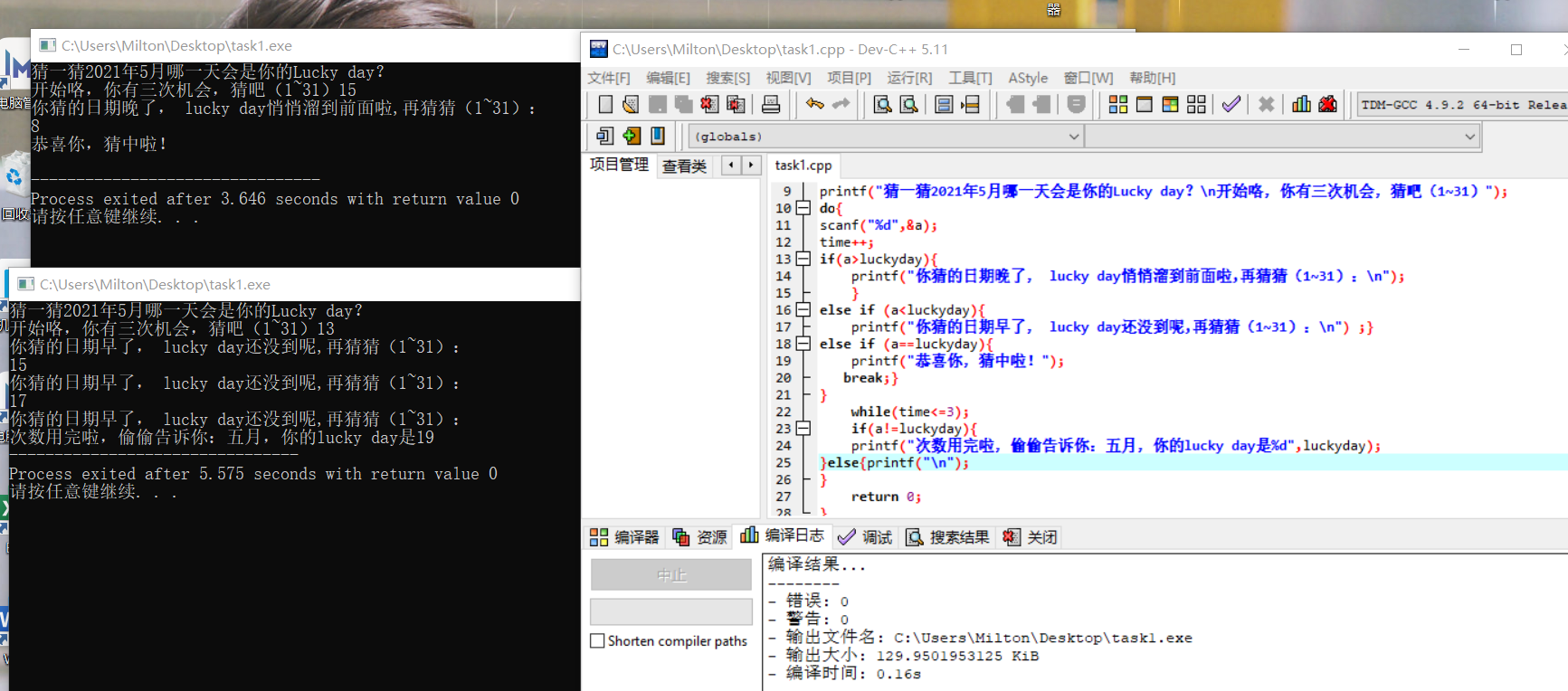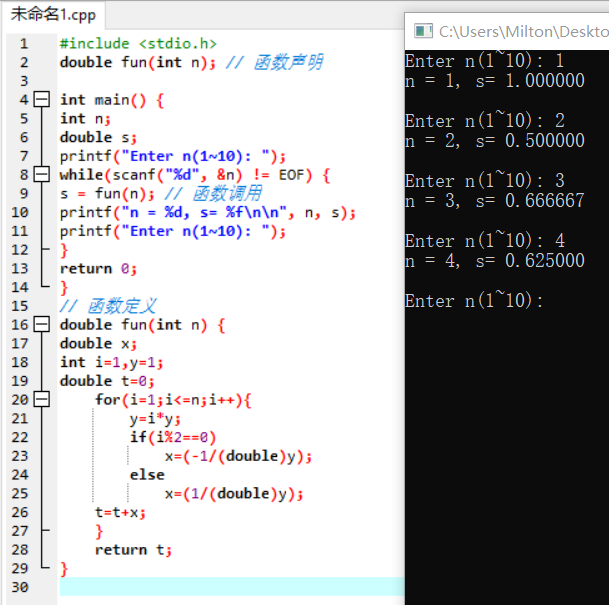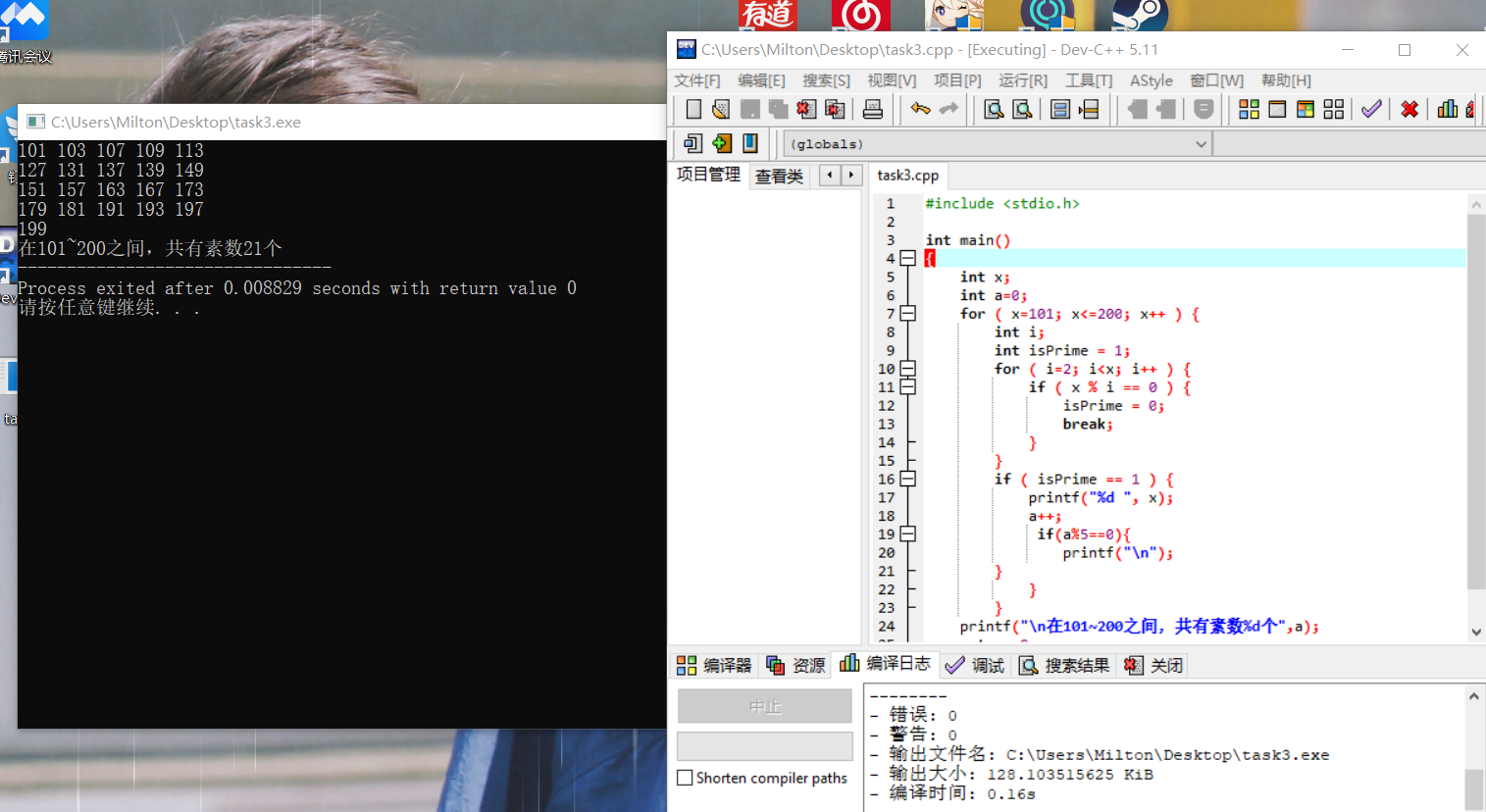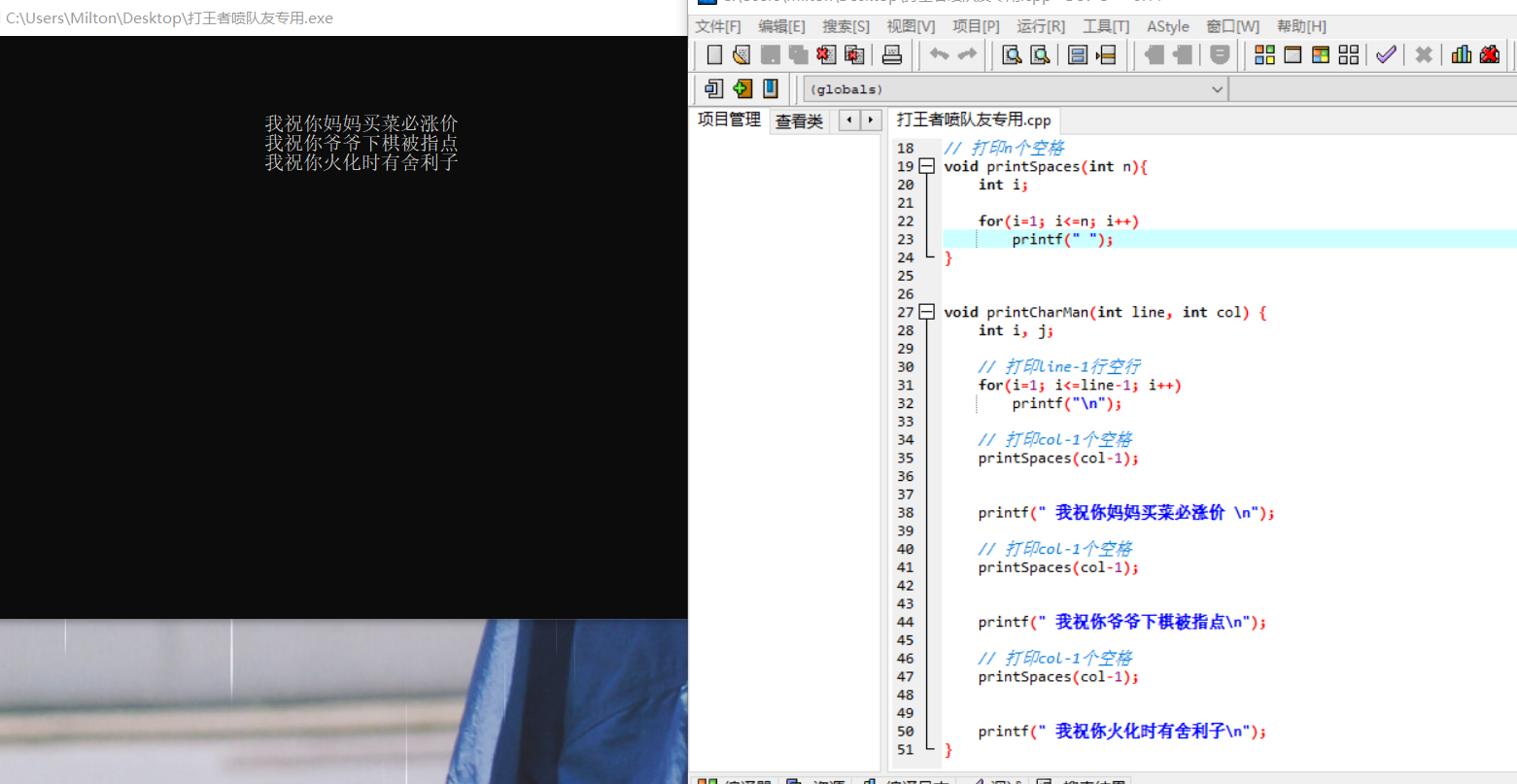实验3 C语言分支语句、循环语句、函数综合应用编程
Task1:
// 生成N个0~31之间的随机整数,并打印输出 #include <stdio.h> #include <stdlib.h> #include <time.h> #define N 5 int main() { int x, n; srand(time(0)); // 以当前系统时间作为随机种子 for(n=1; n<=N; n++) { x = rand() % 32; // 生成一个0~31之间的随机整数 printf("%3d", x); } printf("\n"); return 0; }

X%n(n为常数)的意思就是[0,n-1]的整数,即[0,n-1]以内的数字 由取余实现
Task2:
#include <stdio.h> #include <stdlib.h> #include <time.h> int main() { srand(time(0)); int luckyday = rand()%31+1; int a; int time=1; printf("猜一猜2021年5月哪一天会是你的Lucky day?\n开始咯,你有三次机会,猜吧(1~31)"); do{ scanf("%d",&a); time++; if(a>luckyday){ printf("你猜的日期晚了, lucky day悄悄溜到前面啦,再猜猜(1~31):\n"); } else if (a<luckyday){ printf("你猜的日期早了, lucky day还没到呢,再猜猜(1~31):\n") ;} else if (a==luckyday){ printf("恭喜你,猜中啦!"); break;} } while(time<=3); if(a!=luckyday){ printf("次数用完啦,偷偷告诉你:五月,你的lucky day是%d",luckyday); }else{printf("\n"); } return 0; }

Task3:
#include <stdio.h> int main(){ long long s; int t=0; int n=1; int x=1; printf("Enter a number:"); while(scanf("%lld",&s) != EOF){ int y=0; while(s!=0){ n=s%10; s=(s-n)/10; if(n%2!=0) t=t*10+n; } while(t!=0){ x=t%10; t=(t-x)/10; y=y*10+x; } printf("new number is:%d\nEnter a number:",y); } return 0; }

Task4:有一说一,“一元二次方程的根,能否设计成以函数返回值的方式返回给主调函数?“这句话是什么意思我都看不懂 我就说个否吧 ,等我日后功底雄厚再来回答。
// 一元二次方程求解(函数实现方式) // 重复执行, 直到按下Ctrl+Z结束 #include <math.h> #include <stdio.h> // 函数声明 void solve(double a, double b, double c); // 主函数 int main() { double a, b, c; printf("Enter a, b, c: "); while(scanf("%lf%lf%lf", &a, &b, &c) != EOF) { solve(a, b, c); // 函数调用 printf("Enter a, b, c: "); } return 0; } // 函数定义 // 功能:求解一元二次方程,打印输出结果 // 形式参数:a,b,c为一元二次方程系数 void solve(double a, double b, double c) { double x1, x2; double delta, real, imag; if(a == 0) printf("not quadratic equation.\n"); else { delta = b*b - 4*a*c; if(delta >= 0) { x1 = (-b + sqrt(delta)) / (2*a); x2 = (-b - sqrt(delta)) / (2*a); printf("x1 = %.2f, x2 = %.2f\n", x1, x2); } else { real = -b/(2*a); imag = sqrt(-delta) / (2*a); printf("x1 = %.2f + %.2fi, x2 = %.2f - %.2fi\n", real, imag, real, imag); } } }
Task5:
#include <stdio.h>
double fun(int n); // 函数声明
int main() {
int n;
double s;
printf("Enter n(1~10): ");
while(scanf("%d", &n) != EOF) {
s = fun(n); // 函数调用
printf("n = %d, s= %f\n\n", n, s);
printf("Enter n(1~10): ");
}
return 0;
}
// 函数定义
double fun(int n) {
double x;
int i=1,y=1;
double t=0;
for(i=1;i<=n;i++){
y=i*y;
if(i%2==0)
x=(-1/(double)y);
else
x=(1/(double)y);
t=t+x;
}
return t;
}

Task6:
#include <stdio.h> int main() { int x; int a=0; for ( x=101; x<=200; x++ ) { int i; int isPrime = 1; for ( i=2; i<x; i++ ) { if ( x % i == 0 ) { isPrime = 0; break; } } if ( isPrime == 1 ) { printf("%d ", x); a++; if(a%5==0){ printf("\n"); } } } printf("\n在101~200之间,共有素数%d个",a); return 0; }

Task7:娱乐娱乐



